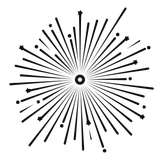10 Things I’ve Learned About Reading Offline for a Month
Now that the dust has settled, I’ve gained more clarity about my experience.

As promised, here’s a postmortem of last month's offline reading experiment. Now that the dust has settled, I’ve gained more clarity about my experience. Initially, the benefits weren’t apparent to me. March was a tough month, and the challenge felt like an extra burden with little added reward. But it’s only in hindsight that I realized it’s paid off.
At the end of the month, there were 49 e-mails in my “Read in April” folder. So far, I’ve gone through four. That doesn’t include e-mails that go directly into my newsletter folder, which contains over 700 unread e-mails. (Clearly, some purging awaits me.)
I read these books in the following order:
- The House on Mango Street by Sandra Cisneros
- Tunneling to the Center of the Earth: Stories by Kevin Wilson
- The Bear and the Nightingale by Katherine Arden
- The Dispossessed by Ursula K. Le Guin
This might seem like a lot for some, although not so much for others. The goal wasn’t to read as many books as possible. My experiment was to see if I could read more books by minimizing time on my electronic devices, and the answer was yes. Even while still watching the occasional Netflix show, cheating from time to time, and spending hours furniture shopping online. The answer was still yes.

Photo by Jamie Street on Unsplash
In summary, here are the things I’ve learned:
- During the first half of the month, I felt withdrawal symptoms from online reading, which frankly surprised me. I didn't think I was an addict.
- Apparently, my brain associates offline reading with fiction because that’s all I read. This is probably because I mostly read nonfiction online.
- My average reading speed was roughly a book per week when I reduced online distractions. Had I spent less time searching for fridges and washing machines, I could have improved it further.
- Reading offline, aka picking up a book, appears to require more effort than turning on a screen. This transforms reading into an intentional and deliberate act.
- Carrying books around is a pain in the butt, and I have discovered I’m not one of those people who will sneak in a few pages to read here and there.
- I have stacks of unread books at home, yet I still ended up reading library books instead. I’m not sure why.
- My preference for consuming certain types of information via text, audio, or video has become apparent to me during this experiment. While there are other ways to consume information, I prefer reading to all other methods when I want to be informed.
- Doing this sort of challenge in the middle of a move may not be the best timing. As I mentioned before, I would occasionally break my own rules and spend more time than usual on the web browsing home furnishings and supplies. Despite all of this, I still finished four books, which makes me wonder how much more I could read under normal circumstances.
- My brain didn’t feel more rested from reading offline. But this may be because of other circumstances related to the point above.
- I drastically underestimated the power of screen use and the energy needed to oppose it.
Unintended consequences
1. At first, I didn’t feel like offline reading had any positive impact on me. If anything, it made me feel alienated. Not in the FOMO sense, but just disconnected from what was going on around me. Halfway into April, I know my online reading hasn’t returned to the same levels as they were before the challenge, and yet I don’t feel so disconnected anymore. Maybe because the quality and frequency of my online reading have improved.
2. I know my book reading has already slowed down this month. So I can confirm that the challenge allowed me to finish more books.
3. I’m back to multi-book reading. If you’re wondering if this slows down my reading pace, the answer is yes. But I’m alternating between my e-reader and physical books more frequently than I used to.
In summary, the offline reading challenge was hard. Despite not executing it perfectly or in the best conditions, it still enabled me to read more books than usual. I'm now more mindful of what I choose to read online.
The challenge was a digital detox in some sense, which allowed me to reset my reading intentions. Moving forward, I think I’ll try repeating the experience every few months.
How did your offline reading challenge go? What did you learn from it? Is it something you would repeat? What would you do differently next time? Let me know!
Happy writing, happy creating!
G.G. Law
Thank you for reading Things I've Learned. This post is public so feel free to share it.





